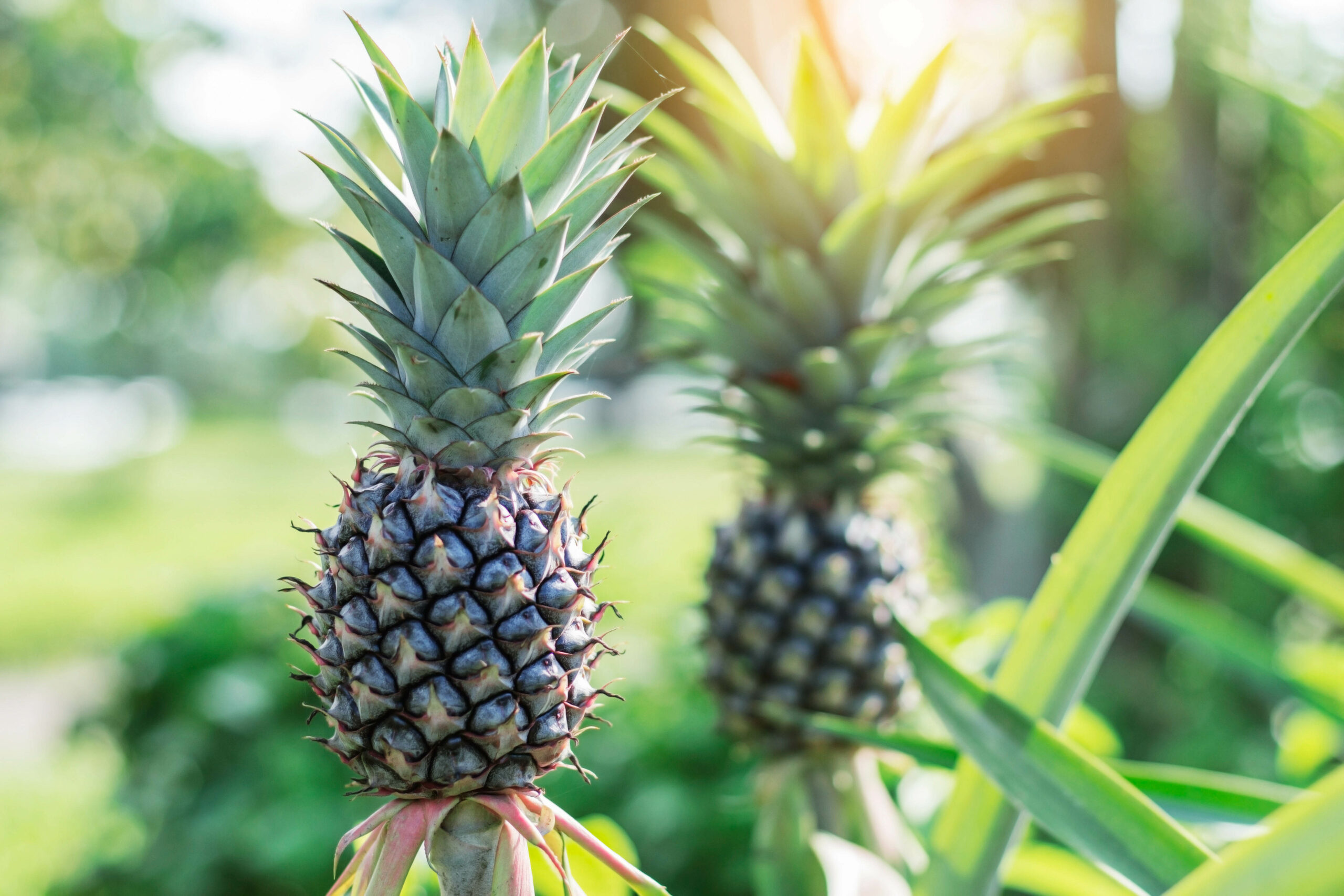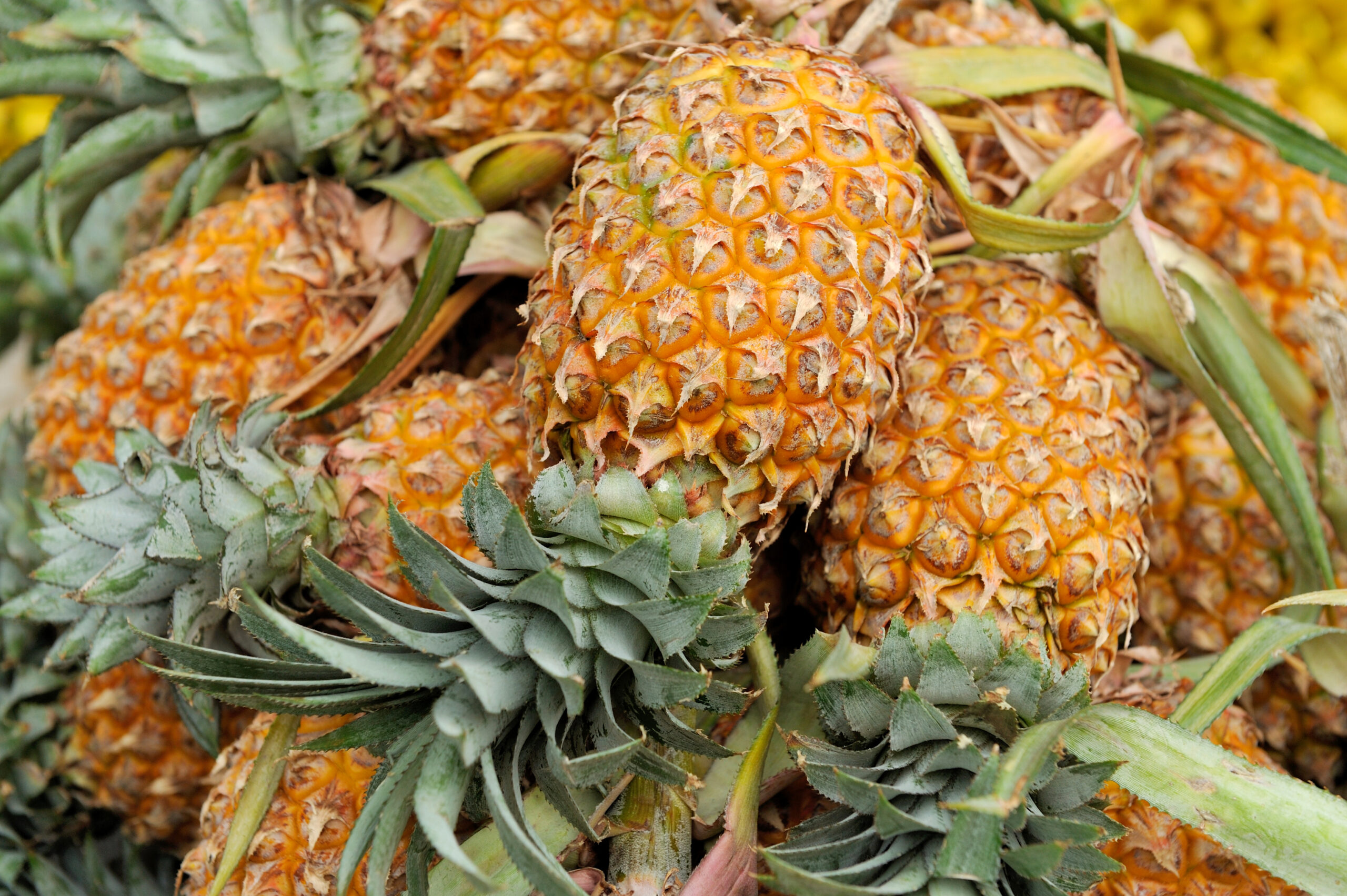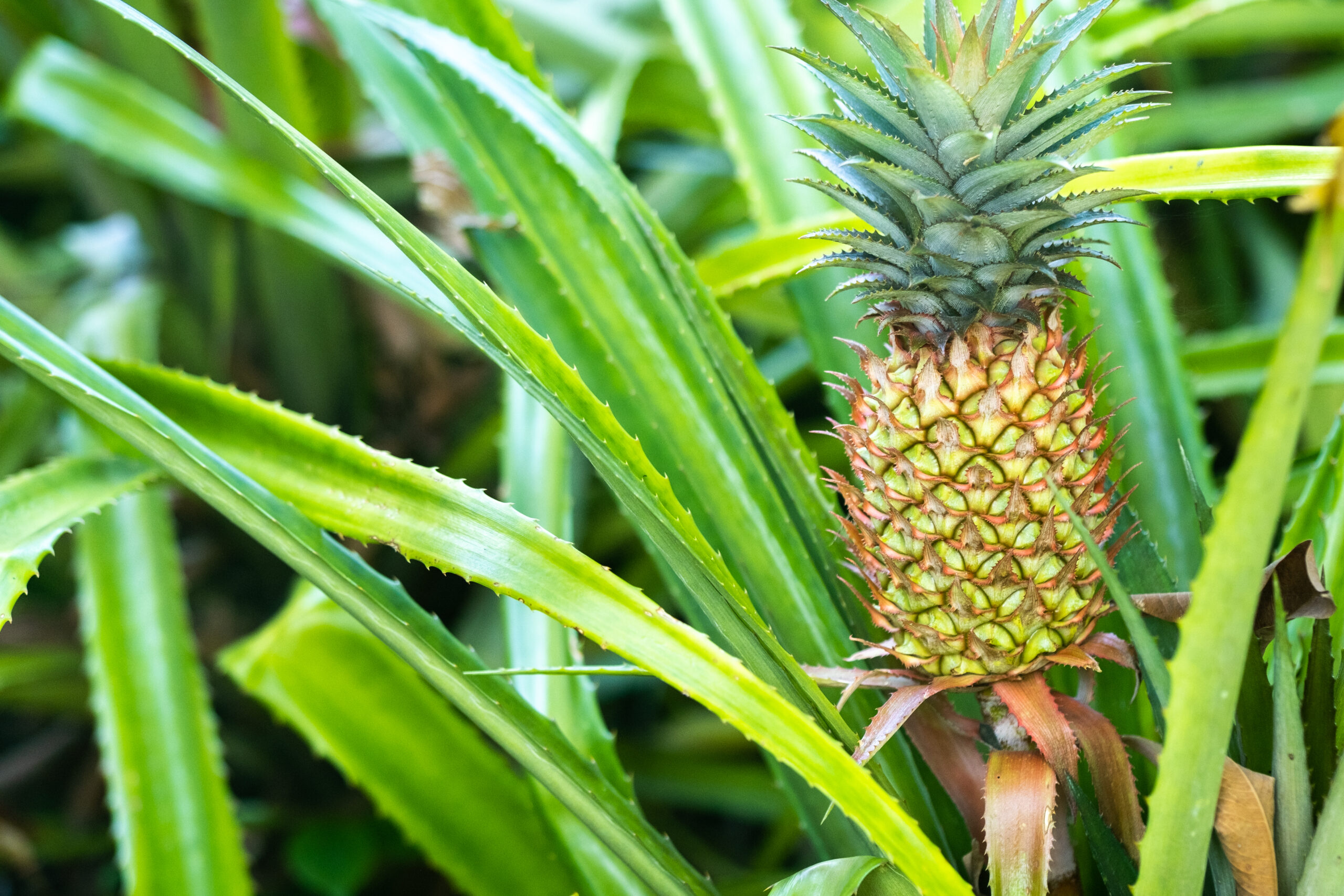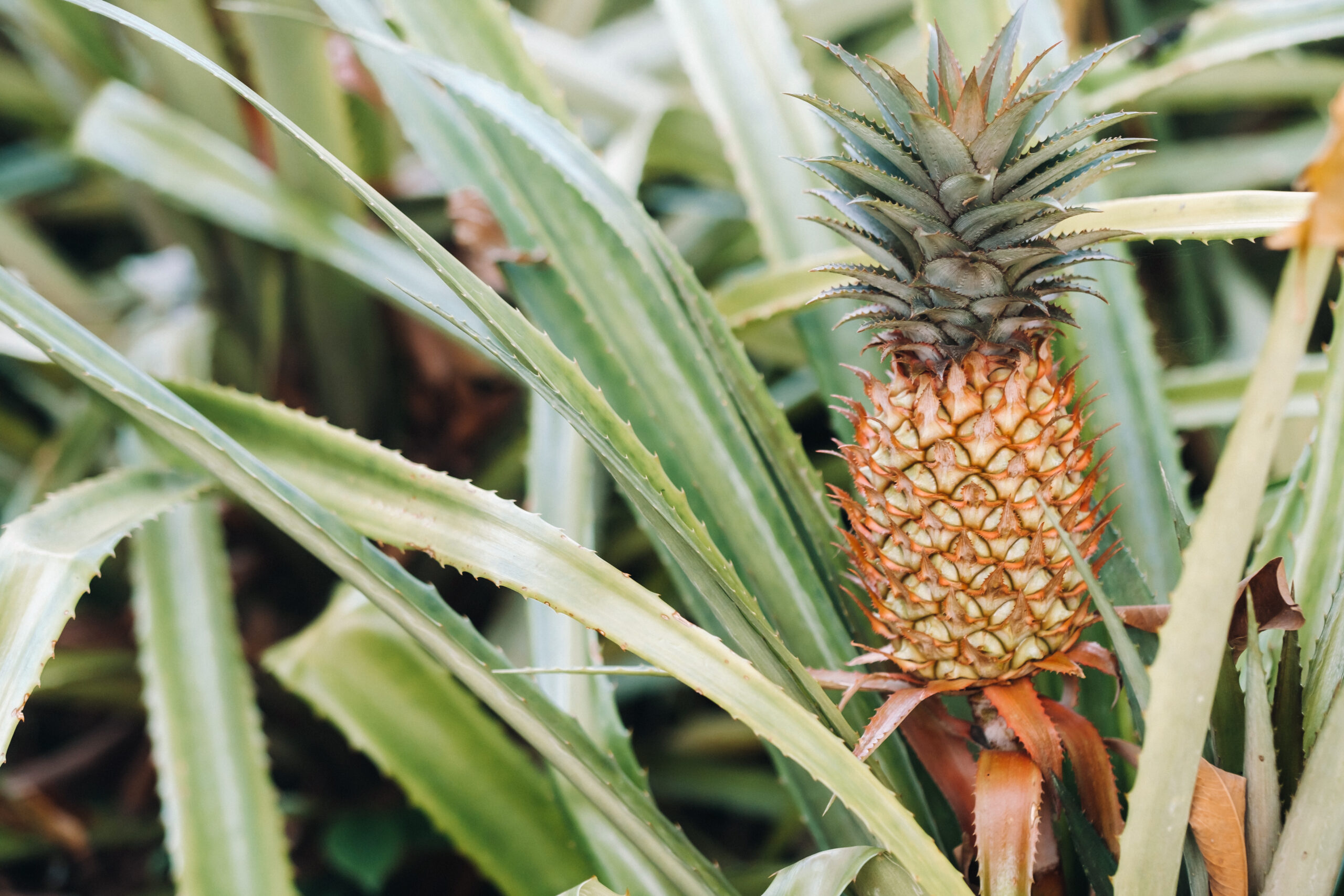Pineapple, a tropical fruit loved for its juicy and sweet taste, is susceptible to various diseases, including fruit rot. Understanding and managing these diseases, particularly black rot of pineapple and fruitlet core rot disease, are essential for healthy cultivation. This article explores natural and organic methods to effectively prevent and control pineapple diseases, focusing on eco-friendly and sustainable approaches.

How to Prevent Pineapple Fruit Rot Naturally
Pineapple Fruit Rot Causes and Symptoms
Pineapple fruit rot, primarily caused by fungal infections, leads to significant losses in pineapple cultivation. Symptoms of pineapple diseases, like the black rot of pineapple, include dark, sunken lesions on the fruit, eventually leading to decay. Pineapple diseases, such as fruitlet core rot disease, often manifest as discolored, softened areas in the core, making the fruit inedible. Understanding these symptoms is crucial for timely intervention and control of pineapple disease.
Organic Methods for Preventing Pineapple Fruit Rot
Organic methods to prevent pineapple fruit rot focus on cultural practices and the use of natural substances. Crop rotation and proper field sanitation help reduce the risk of disease. Using organic mulches and ensuring good air circulation around plants can also prevent the conditions that favor the onset of pineapple diseases. Organic fungicides, derived from natural sources, can be applied as a preventative measure against black rot of pineapple and other diseases.
Natural Treatments for Controlling Pineapple Fruit Rot
Natural treatments for controlling pineapple fruit rot include biological agents and homemade remedies. Beneficial microorganisms, like certain bacteria and fungi, can be introduced to the soil to combat pathogens. Home remedies, such as neem oil or garlic sprays, can effectively control the early stages of pineapple diseases. Regular monitoring and timely application of these treatments are essential for effective control.
Effective Ways to Manage Pineapple Fruit Rot Naturally
Managing pineapple fruit rot naturally involves a combination of good agricultural practices and natural disease suppressants. Ensuring adequate drainage and avoiding overhead irrigation can reduce the moisture levels that favor fungal growth. Natural composts and green manures can enhance soil health, making plants more disease-resistant. Regular inspection of plants for early signs of black rot or pineapple symptoms can help take timely action.
In case you missed it: How to Prevent Bottle Gourd Fruit Rot Naturally: How to Control with Natural and Organic Treatment

How to Prevent Pineapple Fruit Rot Organically
Preventing pineapple fruit rot organically requires a proactive approach. Selecting disease-resistant pineapple varieties and maintaining a balanced soil pH can significantly reduce disease risk. Organic methods such as crop rotation and compost teas can enhance plant immunity. Applying organic mulches and practicing good irrigation management are also effective in preventing the occurrence of pineapple diseases.
Sustainable Approaches to Combat Pineapple Fruit Rot
Sustainable approaches to combat pineapple fruit rot focus on long-term solutions that benefit both the environment and the crop. Integrating pest management strategies, such as encouraging beneficial insects that feed on disease-causing organisms, can be highly effective. Conservation of natural habitats around pineapple fields can also promote ecological balance, reducing the incidence of diseases.
Eco-Friendly Techniques for Pineapple Fruit Rot Prevention
Eco-friendly techniques for preventing pineapple fruit rot emphasize using environmentally safe practices. Using natural pest control methods like pheromone traps and biological agents decreases the need for chemical treatments. Implementing organic farming practices, including using green manures and organic compost, not only prevents fruit rot but also enhances the overall health of the pineapple crop.
In case you missed it: How to Prevent Mango Fruit Rot Naturally: How to Control with Natural and Organic Treatment

Holistic Strategies for Controlling Pineapple Fruit Rot Naturally
A holistic strategy encompassing various agricultural practices is essential to control pineapple fruit rot naturally. This includes enhancing soil health through organic amendments and strengthening plant resilience against diseases. Crop diversity in and around pineapple fields can disrupt the life cycle of pathogens, reducing disease incidence. Utilizing natural predators and beneficial insects aids in keeping harmful pests and disease agents in check.
Implementing proper irrigation techniques to avoid excessive moisture and adequate plant spacing ensures good air circulation, further reducing disease risk. Regular monitoring for early detection of symptoms, coupled with timely natural interventions like neem oil or garlic spray applications, can effectively control the spread of pineapple diseases. This holistic approach controls fruit rot and contributes to the overall sustainability and health of the pineapple cultivation ecosystem.
Non-Toxic Remedies for Preventing Pineapple Fruit Rot
Preventing pineapple fruit rot effectively involves using non-toxic remedies that are safe for both the environment and the consumers. Natural fungicides, such as baking soda solutions or vinegar sprays, can be used as preventative treatments. These remedies create an inhospitable environment for the pathogens causing pineapple diseases.
The application of botanical extracts, like those from neem or eucalyptus, has been shown to have fungicidal properties that help prevent fruit rot. Enhancing plant immunity through natural soil amendments like compost and biofertilizers is crucial in disease prevention. These non-toxic remedies effectively prevent pineapple fruit rot and align with organic farming principles, ensuring a healthy and sustainable crop production system.
Environmentally Safe Practices for Managing Pineapple Fruit Rot
Managing pineapple fruit rot in an environmentally safe manner involves integrating sustainable and eco-friendly practices. Adopting organic farming techniques, such as using green manures and composts, boosts soil health and plant vigor, reducing the likelihood of disease outbreaks. Employing companion planting, which involves cultivating specific plant combinations to discourage pests and diseases, can be an effective strategy for controlling pineapple fruit rot.
In case you missed it: How to Prevent Papaya Fruit Rot Naturally: How to Control with Natural and Organic Treatment

Utilizing biological control methods, such as introducing beneficial microorganisms that antagonize fruit rot pathogens, offers a safe and natural way to manage diseases. Reducing the use of synthetic chemicals and focusing on natural, biodegradable options minimizes environmental impact. These environmentally safe practices help manage pineapple fruit rot and contribute to the conservation of biodiversity and the sustainability of the agricultural ecosystem.
Conclusion
Managing pineapple fruit rot effectively requires a combination of natural, organic, and eco-friendly strategies. From using holistic and non-toxic remedies to implementing environmentally safe practices, these methods control diseases and contribute to sustainable agriculture. Emphasizing soil health, plant diversity, and natural pest control, these approaches ensure the production of healthy pineapples while preserving the environment. Adopting these practices is beneficial for the current crop and the long-term health of the ecosystem, ensuring that pineapple cultivation remains sustainable and productive for years to come.
- Feed Your Flock for Less: Top 10 Tips to Save on Chicken Feed
- Ultimate Guide to Ossabaw Island Hog: Breeding, Raising, Diet, and Care
- Hatching Answers: The Top 10 Reasons Your Chickens Aren’t Laying Eggs
- Eggs and Economics: Breaking Down the Cost of Raising Backyard Chickens
- Defend Your Greens: Proven Methods to Keep Iguanas Out of Your Garden
- Ultimate Guide to Cinnamon Queen Chicken: A Comprehensive Guide for Beginners
- Ultimate Guide to California Tan Chicken: Breeding, Raising, Diet, Egg-Production and Care
- Ultimate Guide to Marsh Daisy Chicken: Breeding, Raising, Diet, and Care
- 10 Types of Chicken Farming Businesses You Can Start for Profits